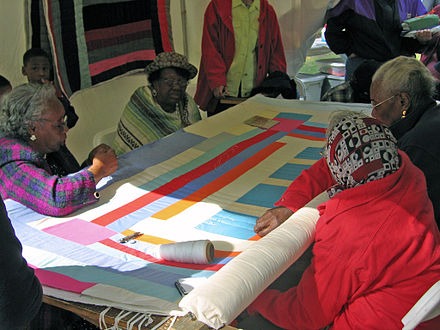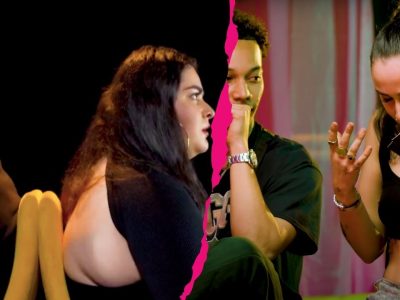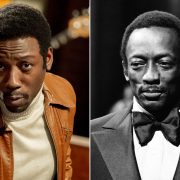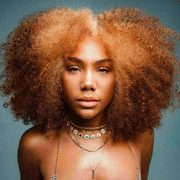
African American quilts are significant art pieces for past and present black Americans, telling stories of slavery and segregation while also representing a hopeful narrative of community and freedom.
The quilts of Gee’s Bend are created by a group of women and ancestors who lived in the African-American hamlet of Gee’s Bend, along the Alabama River, Alabama.
They are considered among the most important Afroamerican visual contributions to the history of art in the United States.
The quilts were used as a code for the Underground Railroad. It meant “gather your tools and get physically and mentally prepared to escape,” referring to plantations.
Gee’s Bend is officially called Boykin, an isolated, rural community named after North Carolina landowner Joseph Gee.
Some famous quilters from Gee’s Bend include Arlonzia Pettway, Annie Mae Young, and Mary Lee Bendolph.
Macy’s collaborated with the Souls Grown Deep Foundation and Community Partnership, Keeco, and the Artists Rights Society.
You can find reproductions of the quilts of Gee’s Band available for online purchases and in Macy’s department stores.
The sales will be used to support artists such as Lucy Mingo, Louella Pettway, Lucy T. Pettway, and Stella Mae Pettway.
The Macy’s collection includes six different designs on patchwork quilts and pillows.
Price ranges between $80-$480, and although they are only available in limited quantities at the moment, they seek to expand nationwide shortly.
The quilts make it clear that art isn’t something separated from culture and history. The most inspired works of a group or tradition also serve a practical need, the need for African American inhabitants of Gee’s Bend to stay warm.
The plantation would change hands repeatedly, with the descendants of those enslaved in the original village still inhabiting Gee’s Bend in the present day.
Gee’s Bend quilts have been sold to support the quilting community in the past through Etsy and the nonprofit Nest. The quilts have been displayed at the Museum of Fine Arts Houston, the Indianapolis Museum of Art, the Philadelphia Museum of Art, and the Whitney Museum of American Art.
This same group of quilters was all joint recipients of a National Heritage Fellowship awarded to them by the National Endowment for the Arts.
This is the United States government’s highest possible honor in the traditional arts.
In short, quilters are an important part of African American history and United States folk culture, a testament to the hope, freedom, and endurance of the African American race as a whole.

















